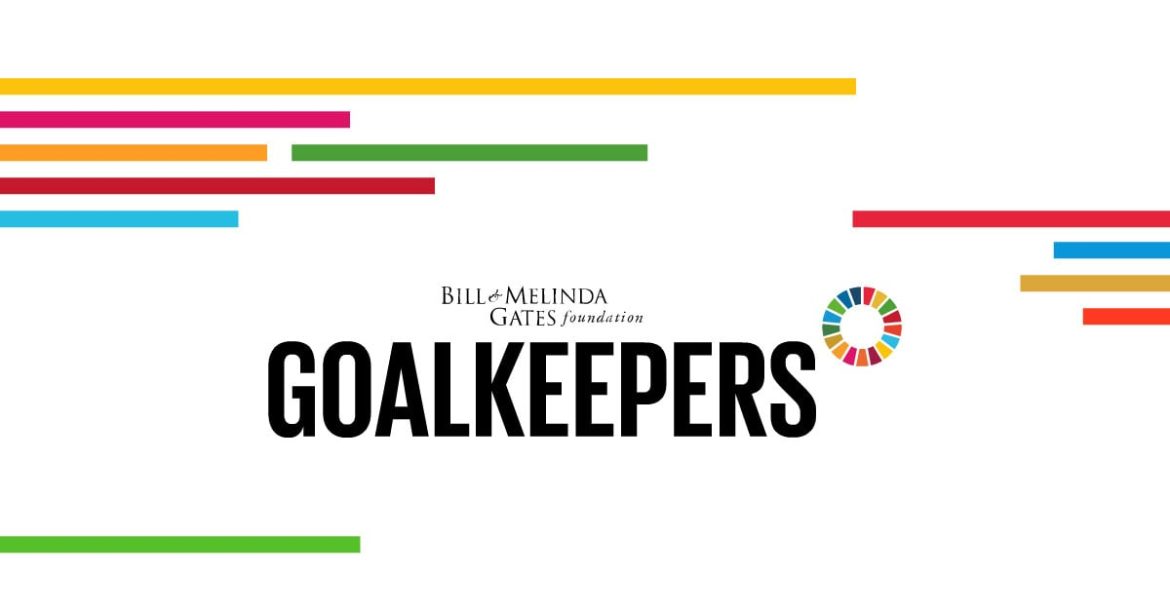By Haruna Gimba
The Bill and Melinda Gates Foundation appeals to world leaders to increase global health spending in areas of need to boost children’s health and nutrition, especially in the face of global climate crisis.
The foundation made the call in its eighth annual Goalkeepers report released on Tuesday.
The Goalkeepers report, “A Race to Nourish a Warming World,” projects that without immediate global action, climate change would impact an additional 40 million children to stunting and 28 million more to wasting between 2024 and 2050.
It notes that scaling up urgent solutions can prevent this outcome, while also building resilience to climate change and spurring much-needed economic growth.
“In 2023, the World Health Organisation (WHO) estimated that 148 million children experienced stunting, a condition where children don’t grow to their full potential mentally or physically.
“And 45 million children experienced wasting, a condition where children become weak and emaciated, leaving them at much greater risk of developmental delays and death.
“These are the most severe and irreversible forms of chronic and acute malnutrition,” it said.
The foundation noted that as global challenges intensify, the total share of foreign aid going to Africa has decreased.
It said in 2010, 40 per cent of foreign aid went to African countries, however, that number has declined to 25 per cent, the lowest percentage in 20 years, in spite of more than half of all child deaths occurring in Africa.
According to the foundation, the trend leaves hundreds of millions of children at serious risk of dying or suffering from preventable diseases and threatens the unprecedented progress the world made in global health across Africa between 2000 and 2020.
Mr Bill Gates, Co-chair of the foundation, said: “Today, the world is contending with more challenges than at any point in my adult life: inflation, debt, new wars.
“Unfortunately, aid isn’t keeping pace with these needs, particularly in the places that need it the most.
“I think we can give global health a second act—even in a world where competing challenges require governments to stretch their budgets,” he said.
According to Gates, malnutrition is the world’s worst child health crisis, and climate change is only making it worse.
Amid this crisis, Gates called for maintaining global health funding to immediately address the growing threat of child malnutrition by supporting the Child Nutrition Fund.
The fund is a new platform that coordinates donor financing for nutrition; and governments fully funding the established institutions that have proven effective at protecting millions of lives each year.
These institutions include Gavi, the Vaccine Alliance, and the Global Fund to Fight AIDS, Tuberculosis and Malaria, which are expected to hold their replenishment in 2025.
“If we do these three things, we won’t just usher in a new global health boom and save millions of lives, we’ll also prove that humanity can still rise to meet our greatest challenges,” Gates said.
The report also highlights the catastrophic economic costs of malnutrition and solutions that can help mitigate them.
According to the World Bank, the cost of undernutrition is $3 trillion in productivity loss every year, because malnutrition stunts people’s physical and cognitive abilities.
It said that in low-income countries, that loss ranges from three per cent to 16 per cent or more of GDP, which amounts to a permanent 2008-level global recession every year.
On proven tools to fight malnutrition, Gates said investing in nutrition was the best way to fight the impacts of climate change.
“If we solve malnutrition, we make it easier to solve every other problem. We solve extreme poverty. Vaccines are more effective. And deadly diseases like malaria and pneumonia become far less fatal,” Gates said.
The tools highlighted include new agricultural technologies that are boosting milk production and safety to prevent millions of cases of child stunting by 2050.
“Modelling shows that in India, Ethiopia, Kenya, Nigeria, and Tanzania, these technologies can prevent 109 million cases of child stunting by 2050,” Gates said.
Gates also highlights efforts to scale up new ways of fortifying pantry staples, such as salt and bouillon cubes, which could reduce millions of cases of anaemia and prevent deaths due to neural tube defects.
“In Nigeria, fortifying bouillon cubes with iron, folic acid, zinc, and vitamin B12 could avert up to 16.6 million cases of anaemia and up to 11,000 deaths from neural tube defects,” he said.
He added that efforts to provide a high-quality prenatal vitamin for pregnant women could save almost half a million lives and improve birth outcomes for 25 million babies by 2040.
The philanthropist said that adopting multiple micronutrient supplements (MMS) costs as little as $2.60 for an entire pregnancy in all low- and middle-income countries.
Gates also highlights how promising new research into the microbiome could improve people’s health.
According to him, studies indicate that better gut health can help children absorb nutrients, develop strong immune systems, and grow as they should.
“A deeper understanding of gut health has the potential to change not just how the world treats malnutrition but also overnutrition, which impacts wealthy countries,” Gates said.
The foundation through the Goalkeepers report tracks progress for 18 key indicators of the Sustainable Development Goals (SDGs).
The goals were adopted by the United Nations to address global challenges and end extreme poverty, inequality, and climate change by 2030.




